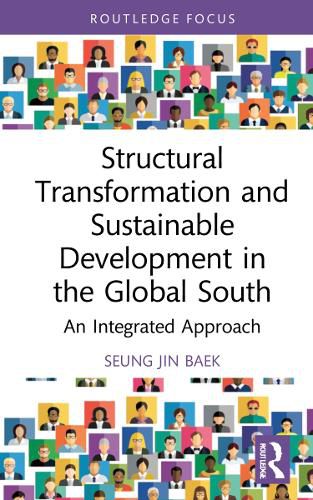Readings Newsletter
Become a Readings Member to make your shopping experience even easier.
Sign in or sign up for free!
You’re not far away from qualifying for FREE standard shipping within Australia
You’ve qualified for FREE standard shipping within Australia
The cart is loading…






This book investigates the relationship between sustainable development and structural transformation within international development policy.
On the one hand, sustainable development is promoted as a multi-dimensional concept for achieving environmentally and socially responsible change. On the other hand, structural transformation refers to a sustained period of growth in living standards and incomes that brings sectoral change. For some, these two objectives seem at odds with each other, but this book argues that incorporating environmental initiatives into structural transformation goals in lower-income countries actually results in better results than strategies prioritising economic growth. Drawing on extensive structural equation modelling and original analysis, the book presents an innovative inclusive sustainable development framework to demonstrate the benefits of a more integrated approach to development planning, aiming for structural transformation in line with inclusive sustainable development principles.
This book will be of interest to students and researchers of global development, and to policymakers within government and development organizations.
$9.00 standard shipping within Australia
FREE standard shipping within Australia for orders over $100.00
Express & International shipping calculated at checkout
This book investigates the relationship between sustainable development and structural transformation within international development policy.
On the one hand, sustainable development is promoted as a multi-dimensional concept for achieving environmentally and socially responsible change. On the other hand, structural transformation refers to a sustained period of growth in living standards and incomes that brings sectoral change. For some, these two objectives seem at odds with each other, but this book argues that incorporating environmental initiatives into structural transformation goals in lower-income countries actually results in better results than strategies prioritising economic growth. Drawing on extensive structural equation modelling and original analysis, the book presents an innovative inclusive sustainable development framework to demonstrate the benefits of a more integrated approach to development planning, aiming for structural transformation in line with inclusive sustainable development principles.
This book will be of interest to students and researchers of global development, and to policymakers within government and development organizations.